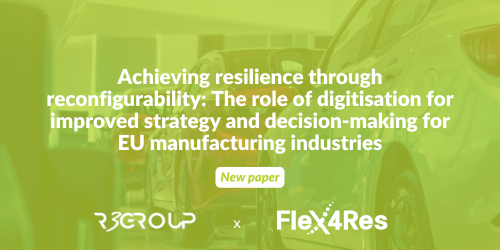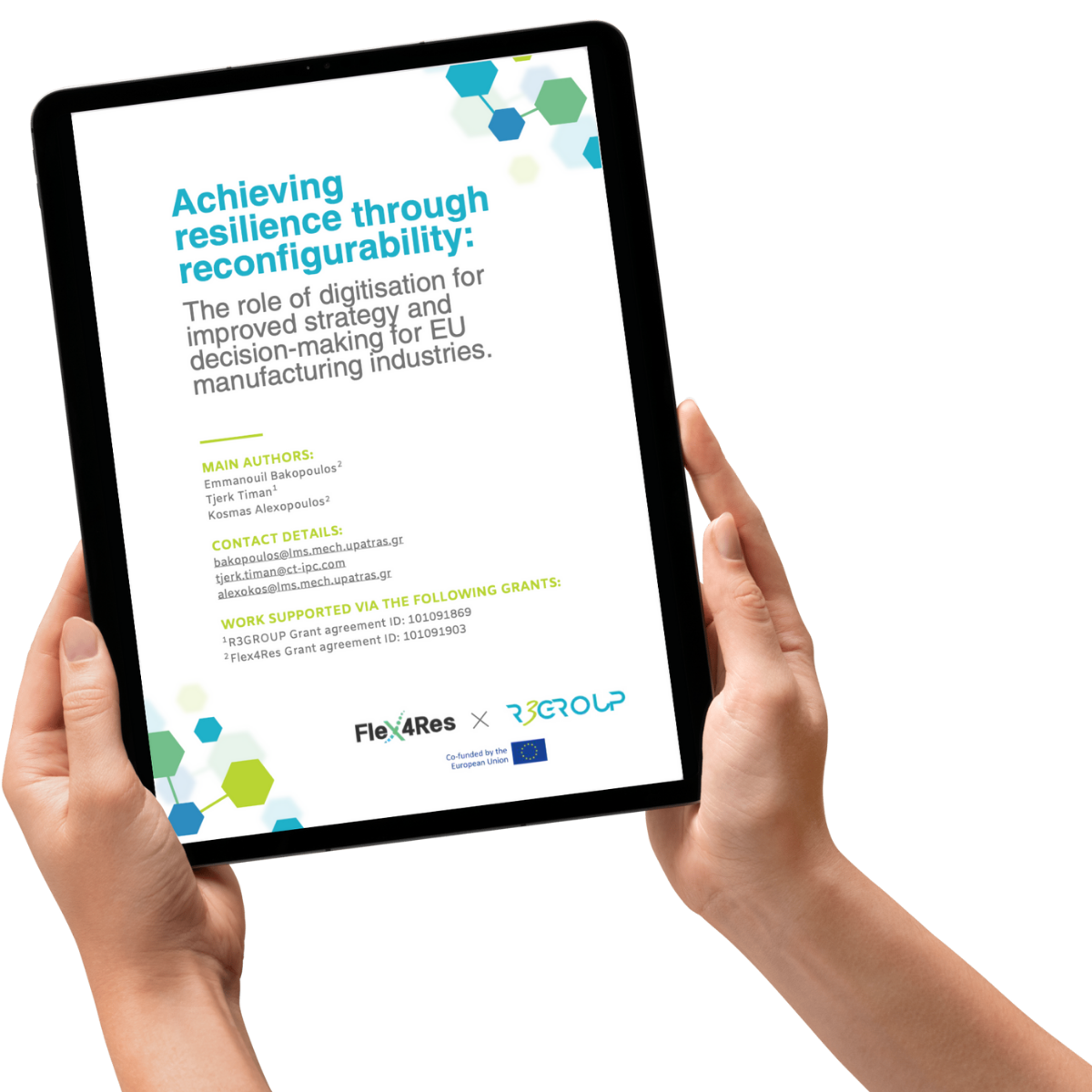The concept of resilience has gained renewed attention in EU policy since the Covid-19 crisis. But what does resilience mean in the context of manufacturing? Broadly, it refers to the ability not only to withstand and cope with challenges but also to undergo transitions in a sustainable, fair, and democratic way—an adaptive capability that allows industries to respond effectively to both expected and unexpected events.
Understanding resilience in practice requires looking at the interdependencies and reinforcing factors of multiple transitions that industries must manage simultaneously to adapt quickly to external pressures.
This is precisely what the new paper by Emmanouil Bakapoulos and Kosmas Alexopoulos (Laboratory for Manufacturing Systems & Automation, LMS) and Tjerk Timan (Industrial Technical Center for Plastics and Composites, IPC) explores
The paper guides readers through the flow of resilience capability building, illustrating each step with concrete examples from two ongoing EU-funded research and innovation projects: R3GROUP and FLEX4RES. You’ll learn about the projects, their approaches to fostering resilience, and the insights gained from real-world industry pilot lines.
If you’re interested in how digitisation, reconfigurability, and strategic decision-making intersect to enhance manufacturing resilience, this paper offers a practical and forward-looking perspective.

